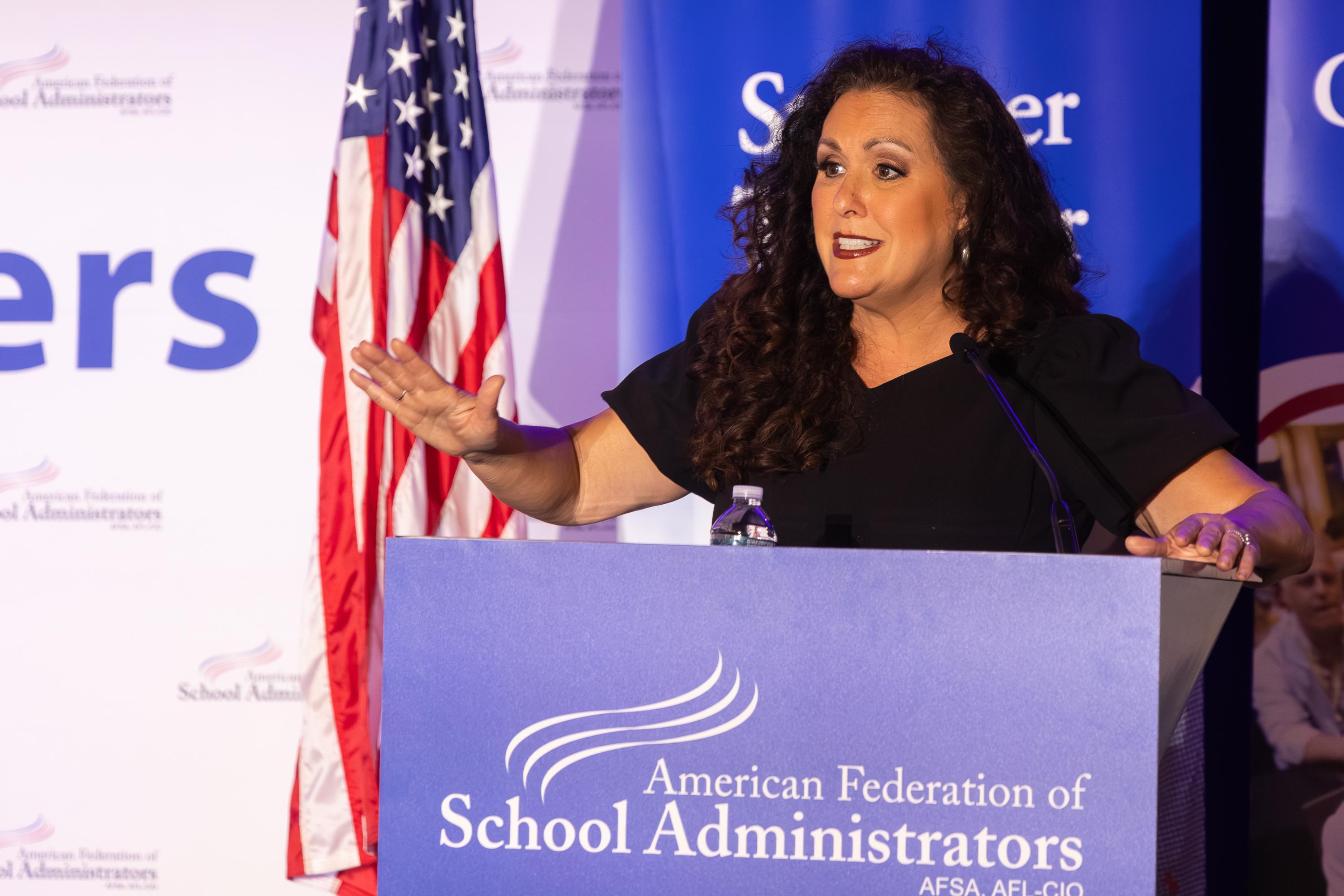Urging labor solidarity and unapologetic activism amid mounting threats to labor rights, public education and democracy, Lorena Gonzalez Fletcher, president of the California Federation of Labor Unions, called on AFSA members to speak out, get organized and resist efforts to divide or silence them—even if it means facing political backlash.
In fiery remarks during the AFSA Convention, Gonzalez Fletcher spoke of her family’s immigrant roots, her own journey through public education, and issued an urgent call for labor to lead the fight to protect democratic values and working-class power.
“I know that I am my ancestors’ wildest dreams,” Gonzalez Fletcher said. “But I worry that a little girl like me today—the daughter of immigrants—may not get the same chance I had. And we should all be worried about that.”
The granddaughter of a farmworker and the daughter of a single mother who became a nurse after attending community college in East Los Angeles, Gonzalez Fletcher was raised in San Diego’s public schools, where she benefited from Title I funding, free and reduced-price lunch, after-school programs, migrant education and affirmative action—support systems that helped pave her path to degrees from Stanford University, Georgetown University and UCLA School of Law.
Rather than chase personal success, she returned home to serve—first as a labor organizer, then as a state legislator and now as the leader of one of the most influential labor federations in the nation. The California Federation of Labor Unions, represents more than 2.3 million union members statewide.
“I was sick and tired of electing people who didn’t give a shit about working people,” she said to loud applause. “So I ran myself.”
Gonzalez Fletcher did not shy away from the threats unions face today—from political attacks to policy rollbacks and creeping authoritarianism.
She pointed to the Trump administration’s withholding of $6.8 billion in education funding, its elimination of migrant education programs, the growing wave of book bans, and the push for vouchers and private schools as evidence of a dangerous agenda targeting working families and public institutions.
“I’m a proud Christian, but the Ten Commandments don’t belong in our schools—they belong in churches,” she said. “This is not about faith. It’s about control.”
Within the labor movement itself, Gonzalez Fletcher addressed hesitation among union locals and leaders who, she said, hoped staying quiet would keep them off political radars.
“No,” she said. “If we fail to use our voice, they will use our silence against us.”
She reminded the audience that this isn’t a partisan issue, but a moral one. “Not every Democrat is our friend, and not every Republican is our enemy,” she said. “But if someone’s hurting workers—we have to speak up.”
At the heart of her message was a call for solidarity—not just within unions, but across industries, races, legal statuses and regions.
“I don’t care how much money you make, what your title is, or how many generations your family has been here,” she said. “If you’re a union member, you have more in common with an undocumented farmworker than with the billionaires calling the shots in Washington.”
She emphasized that labor has always been the strongest force against authoritarianism, in the United States and around the world. “Study history,” she told the crowd. “A strong labor movement is the only thing that’s ever toppled authoritarian governments.”
Despite laying out serious challenges, Gonzalez Fletcher ended her speech with a message of hope and resilience. “We cannot be demoralized,” she said. “Their plan is to wear us down. To make us feel defeated. But joy is an act of resistance.” She encouraged labor leaders to continue building joyful, connected communities—not just for morale, but as a form of political power.
“Sing. Dance. Eat. Laugh. That’s not just okay — it’s necessary,” she said. “And above all, speak up, stand up, and know that you can change this.”
